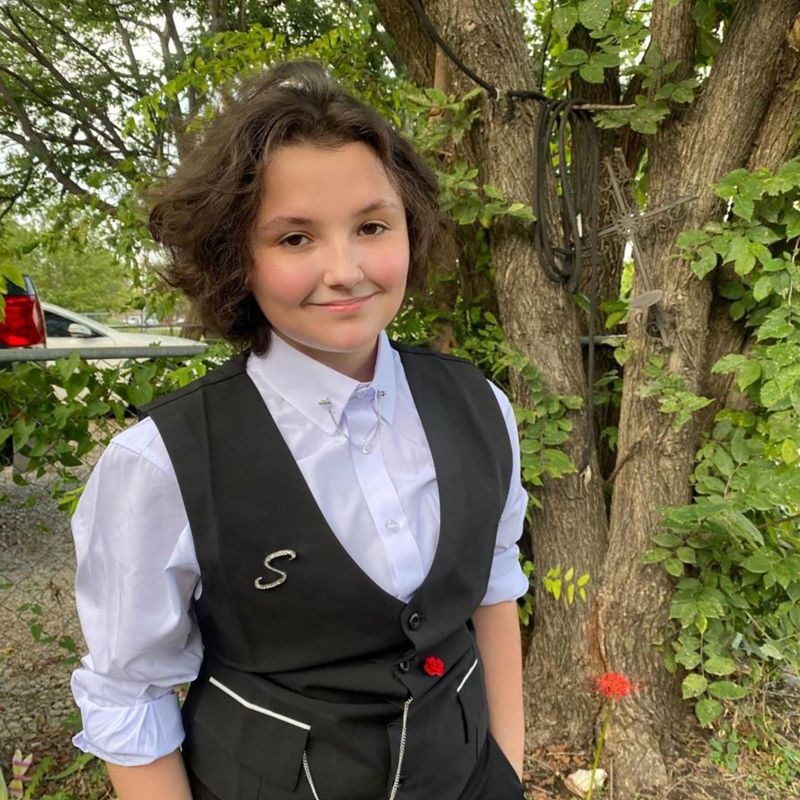The death of Nex Benedict, a 16-year-old non-binary student in Owasso, Oklahoma, has sent shockwaves through the LGBTQ community and triggered a surge in calls to suicide prevention hotlines. This event underscores the ongoing struggles faced by LGBTQ youth in a state with a complex legal and social landscape regarding gender identity and sexual orientation.
A Devastating Loss and Unanswered Questions
On February 8th, 2024, Nex Benedict tragically passed away. While the cause of death remains under investigation, the incident followed reports of a fight involving Nex and another transgender student in an Owasso High School restroom. The Owasso Police Department is actively investigating the case, and the U.S. Department of Education has launched a separate inquiry into the school district’s handling of the alleged harassment.
Crisis Hotline Sees Alarming Spike in Calls
The Rainbow Youth Project USA, a national organization dedicated to LGBTQ youth suicide prevention, witnessed a staggering 238% increase in crisis calls from Oklahoma in the two weeks following Nex’s death. This translates to a jump from their usual average of 325 calls per month to a concerning 1,097 calls during that period.
The overwhelming response prompted the organization to establish a rapid response team specifically focused on handling the surge in calls, particularly from Owasso.
A Community in Distress: Fear, Confusion, and a Need for Support
This dramatic increase in calls reflects the profound impact of Nex’s death on LGBTQ youth in Oklahoma. Many are experiencing heightened fear, anxiety, and emotional turmoil.

“We’ve seen a rapid increase in those calls because kids are scared, they are worried and they are hurting,” says Lance Preston, founder and executive director of the Rainbow Youth Project.
The calls aren’t limited to LGBTQ youth themselves. Parents, concerned about their children’s well-being, are also reaching out for guidance. Up to 15% of the calls received by the Rainbow Youth Project were from parents seeking information on Title IX protections and advocating for more proactive anti-bullying measures in schools.
A Complex Legal and Social Landscape for LGBTQ Youth in Oklahoma
Nex’s death and the subsequent crisis hotline surge highlight the challenges faced by LGBTQ youth in Oklahoma. The state has a history of legislation perceived as discriminatory towards the LGBTQ community. In 2022, a “bathroom bill” was passed, mandating that students use restrooms corresponding to their birth certificates. Additionally, Governor Kevin Stitt signed an executive order requiring state agencies to identify individuals based on their assigned sex at birth, rather than their gender identity.
Organizations like the Diversity Center of Oklahoma, which provides services to LGBTQ youth, report a heightened sense of fear among LGBTQ youth following Nex’s death.
“The main thing that is on their mind right now is death,” says Kris Williams, program developer and advocate at the Diversity Center. “They’re scared; they’re worried. They’re afraid about coming out at home and being rejected and being thrown out on the streets.”
A Glimmer of Hope: Supportive Parents and a Call for Unity
Despite the grim situation, there are glimpses of hope. The Rainbow Youth Project finds encouragement in the increasing number of parents actively supporting their LGBTQ children.
“To see parents who are taking that step. It says a lot about the support that some of these kids have. Unfortunately, not all of our kids have that, but it’s good to know that some of them do,” says Preston.
Both Williams and Preston emphasize the need to move beyond divisive political rhetoric. They believe there is more support within communities, including conservative ones, than is often acknowledged.
“This isn’t going on in everybody’s homes in Oklahoma, this dialect of just, just hate and loathing,” says Williams. “We have more support within our communities – within our conservative communities – than people realize.”
Moving Forward: Addressing Mental Health Needs and Fostering a More Inclusive Environment
The tragic loss of Nex Benedict serves as a stark reminder of the critical need for comprehensive support systems for LGBTQ youth. Increased access to mental health services, coupled with inclusive school environments that prioritize safety and respect for all students, are crucial.
Advocacy groups like the Rainbow Youth Project and the Diversity Center of Oklahoma play a vital role in providing support and resources. However, a broader shift in social attitudes and legal protections is necessary to ensure the safety and well-being of LGBTQ youth in Oklahoma.



